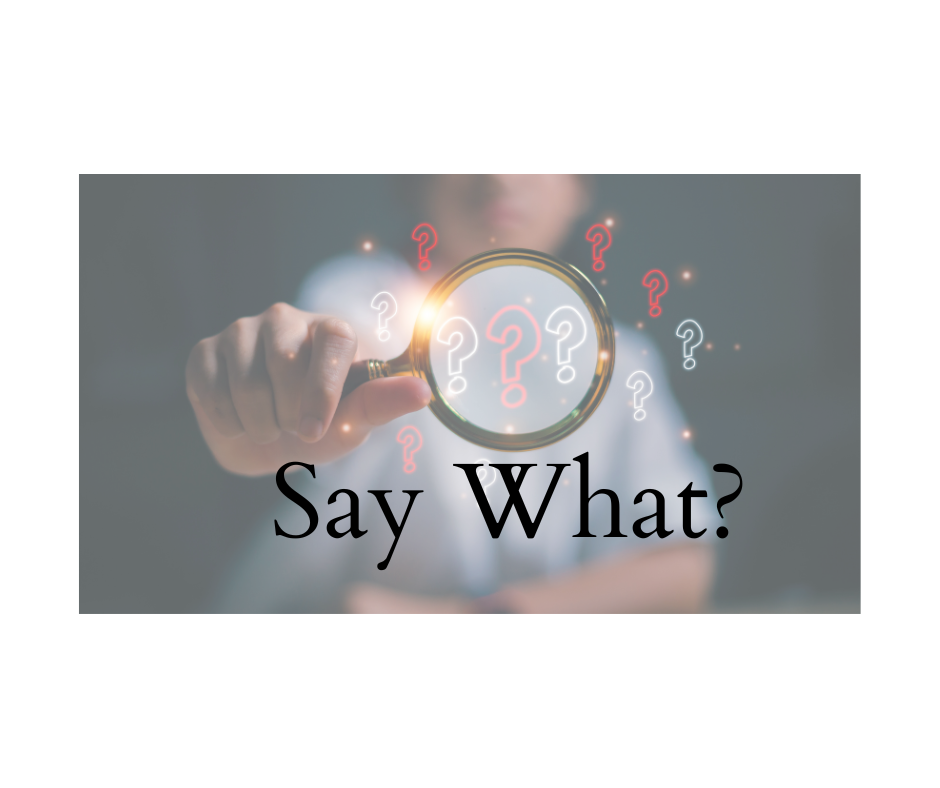A Simple, Fun Lesson about Participial Phrases
Now, don’t get all hot and bothered by the expression “participial phrase.” Something that is participial has to do with the part of speech that is a participle. What’s a participle? Well, it’s complicated. Let’s just say it reminds me of a photon—which can be both a particle and a wave. In similar fashion, a participle can be a verb and an adjective. How? By forming a phrase with a verb, you create a kind of adjective that modifies (affects, alters, describes) a noun.
Okay, enough with the grammar lesson. It will make more sense once you read on.
One telltale sign of an inexperienced writer is the overuse of participial phrases to begin a sentence. Participial phrases are easily identified because they almost always begin with a verb that ends in ing or ed. If the participle is present tense, it will dependably end in ing. Likewise, a regular past participle will end in a consistent ed. Irregular past participles, unfortunately, conclude in all kinds of ways.
- Example: Writing in longhand, Steinbeck wrote The Grapes of Wrath in five months.
“Writing in longhand” is a participial phrase that modifies wrote. As modifiers, participial phrases can be a convenient way to add information, especially to downplay less interesting or pertinent information. In this example, the participial phrase conveys significant information. But in a paragraph like the following, ask yourself how much of the information delivered through the participial phrases is necessary to the narrative.
- Seething with anger, Jennifer stormed into the kitchen. Slamming the door, she shouted for her mother. Finding her in the living room, she demanded, “How could you? Telling Mrs. Olson about my crush on Jimmy.”
See which of the two following examples you think is more concise and less clunky:
- Eaten by mosquitoes, we wished that we had made hotel, not campsite, reservations.
- We wished we had stayed in a hotel instead of a campsite. The mosquitoes ate us alive.
How about this?:
- The water drained slowly in the pipe clogged with dog hair.
- The pipe was so clogged with dog hair, the water barely drained.
You can see how awkward using these participial phrases are. I sometimes see manuscripts that are chock-full of them (Interesting aside: chock-full comes from the Middle English word that means “to choke.” So don’t let these phrases choke your writing).
Some editors encourage writers to avoid participial phrases altogether. That seems a bit extreme. But it’s a good practice to review your writing for any unnecessary participles and remove them, or find another way to convey that important piece of the narrative.
If you’re a photon, you can decide if you want to be a particle or a wave. If you’re a writer, you can decide if you want to turn verbs into adjective phrases. Sometimes it’s not a good idea.








Thank you for this article. You’ve explained and demonstrated so well how modifying a verb with a participle phrase only adds unnecessary, unwanted and clunky weight to prose. Awareness of this habit can only lead to better writing.
Sometimes I’ll use a participial phrase to change up the writing. Instead of always he said, she said, he did, she did. But, I agree it can be dangerous to overuse them. I always say, when the reader stops and has to scratch his/her head, you’ve done something wrong. If it flows, so be it.
Thanks!
I shared this post with my critique group, I found it so helpful. I see this in my writing, as well as others, but you really know how to make the point clear. Thanks!
It was just pointed out to me that in the first example, “Writing Longhand” modifies the noun Steinbeck, not the verb.